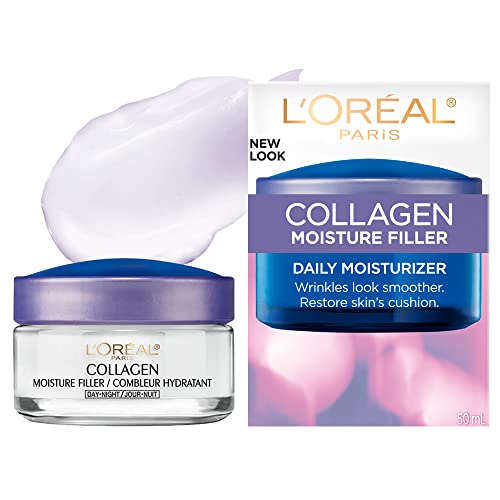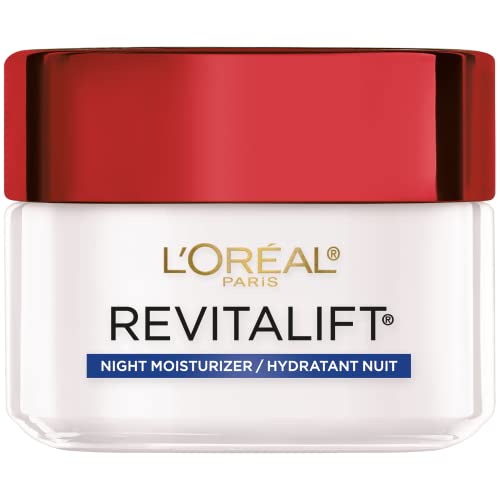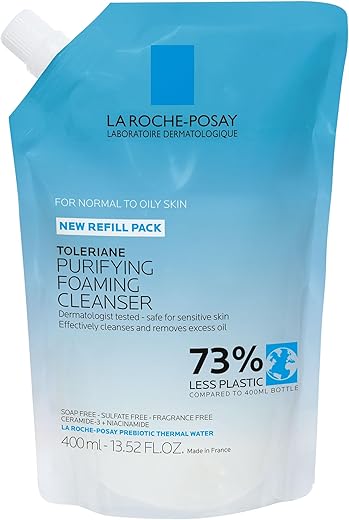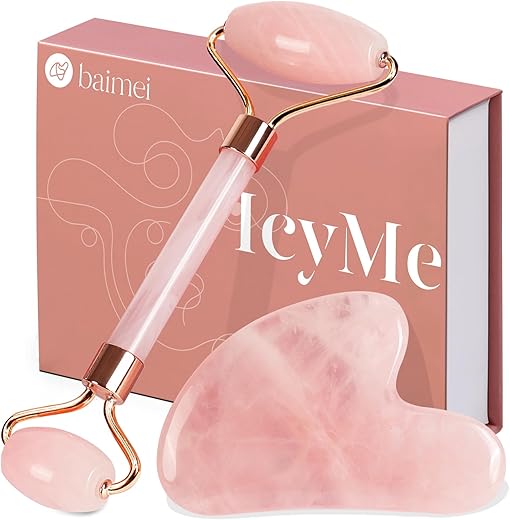
What Ingredients Should You Look for in a Face Anti-Aging Cream?
Are you tired of seeing fine lines and wrinkles when you look in the mirror? Do you want to restore your youthful glow and feel confident in your skin again? If so, you’re not alone. Many people are searching for the perfect face anti-aging cream to help them turn back the clock and achieve a more youthful appearance. But with so many options on the market, it can be overwhelming to know which ingredients to look for. That’s why we’re here to help. In this blog post, we will guide you through the world of face anti-aging creams and highlight the key ingredients that can make a real difference. So sit back, relax, and let’s dive into the world of skincare together.
Discover the top-selling face anti-aging creams for youthful, radiant skin






Understanding the Basics
When it comes to skincare, face anti-aging creams play a crucial role in maintaining a youthful and radiant complexion. However, with the plethora of options available in the market, it can be overwhelming to choose the right cream for your specific needs. In this blog section, we will delve into the basics of face anti-aging creams, equipping you with the knowledge to make an informed decision.



Importance of Moisturization
One of the key elements of an effective face anti-aging cream is its ability to provide adequate moisturization. Proper hydration is essential for maintaining the elasticity and suppleness of the skin, reducing the appearance of fine lines and wrinkles. Here’s why moisturization is crucial:
- Hydrates the skin, preventing dryness and rough texture
- Enhances the skin’s natural barrier function, protecting it from external aggressors
- Plumps up the skin, reducing the depth of wrinkles and fine lines
- Improves skin tone and texture, giving it a youthful glow
Role of Antioxidants
Antioxidants are powerful ingredients that help combat the damaging effects of free radicals, which are unstable molecules that can accelerate the aging process. When incorporated into face anti-aging creams, antioxidants provide numerous benefits, including:
- Neutralizing free radicals, preventing them from damaging the skin cells
- Reducing inflammation and redness, promoting a more even complexion
- Stimulating collagen production, improving skin elasticity and firmness
- Minimizing the appearance of age spots and pigmentation
Some common antioxidants found in face anti-aging creams include:
- Vitamin C: Brightens the skin and evens out skin tone
- Vitamin E: Nourishes and protects the skin from environmental damage
- Green tea extract: Soothes and calms irritated skin, reducing redness
- Resveratrol: Fights against signs of aging and boosts collagen production
Significance of SPF Protection
Sun protection is an integral part of any skincare routine, and face anti-aging creams that offer SPF protection provide an extra layer of defense against harmful UV rays. Here’s why SPF is essential:
- Shields the skin from UVA and UVB rays, preventing sunburn and photoaging
- Reduces the risk of skin cancer caused by excessive sun exposure
- Prevents the breakdown of collagen and elastin fibers, preserving skin elasticity
- Minimizes the appearance of dark spots and pigmentation caused by sun damage
When selecting a face anti-aging cream with SPF, it’s important to consider the following:
- SPF level: Look for a broad-spectrum cream with an SPF of at least 30
- Texture: Choose a cream that blends well with your skin and doesn’t leave a greasy residue
- Reapplication: Ensure the cream can be easily reapplied throughout the day for maximum protection
Choosing the Right Cream for You
Understanding the basics of face anti-aging creams is essential, but finding the right cream for your needs can still be a daunting task. Consider the following factors when making your selection:
- Skin type: Determine whether your skin is dry, oily, combination, or sensitive, and choose a cream formulated for your specific skin type.
- Ingredients: Look for creams that contain a combination of moisturizing agents, antioxidants, and SPF protection to address multiple signs of aging.
- Reviews: Read reviews from trusted sources or consult with a dermatologist to get insights into the efficacy and suitability of different creams.
- Price: Consider your budget and find a cream that offers good value for money without compromising on quality.
By understanding the importance of moisturization, the role of antioxidants, and the significance of SPF protection, you can confidently navigate the world of face anti-aging creams and select the one that best suits your needs. Remember, consistency is key, so incorporate the chosen cream into your daily skincare routine for optimal results.
Powerful Anti-Aging Ingredients
When it comes to anti-aging skincare, one cannot underestimate the power of the right ingredients. With a plethora of options available, it can be overwhelming to choose the best products for your skin concerns. Fear not, for we have compiled a list of the most effective anti-aging ingredients that have been scientifically proven to turn back the hands of time.



1. Retinol: The Gold Standard
Retinol, a derivative of vitamin A, is often hailed as the gold standard in anti-aging. Its exceptional ability to stimulate collagen production and increase cell turnover makes it a must-have ingredient in any anti-aging regimen. Here are some key benefits of retinol:
- Smooths fine lines and wrinkles
- Improves skin texture and tone
- Minimizes the appearance of pores
- Enhances skin elasticity and firmness
Pro tip: Start with a low concentration of retinol and gradually increase usage to avoid skin irritation.
2. Hyaluronic Acid: The Ultimate Hydrator
Hyaluronic acid is a naturally occurring substance in our bodies that has the remarkable ability to retain moisture. As we age, our skin loses its natural hyaluronic acid, leading to dryness, fine lines, and sagging. Incorporating hyaluronic acid into your skincare routine can help combat these signs of aging. Here’s why hyaluronic acid is a game-changer:
- Intensely hydrates and plumps the skin
- Reduces the appearance of wrinkles and fine lines
- Enhances skin’s natural barrier function
- Promotes a youthful, radiant complexion
Pro tip: Look for products with different molecular weights of hyaluronic acid to ensure optimal penetration and hydration at various levels of the skin.
3. Peptides: Building Blocks of Youth
Peptides are short chains of amino acids that play a crucial role in collagen synthesis. As we age, the production of collagen decreases, leading to loss of skin elasticity and the formation of wrinkles. By incorporating peptides into your skincare routine, you can help stimulate collagen production and maintain a youthful complexion. Here’s why peptides are worth considering:
- Boosts collagen production for firmer skin
- Smoothes out wrinkles and fine lines
- Improves skin elasticity and firmness
- Enhances overall skin texture and tone
Pro tip: Look for peptides with specific targets, such as Matrixyl or Argireline, to address your specific skin concerns.
4. Vitamin C: The Radiance Booster
Vitamin C is a powerful antioxidant that not only helps protect the skin against environmental damage but also promotes a radiant, youthful complexion. As an essential component in collagen synthesis, it helps maintain the integrity of the skin and reduce the signs of aging. Here’s why vitamin C deserves a spot in your skincare routine:
- Brightens and evens out skin tone
- Fades dark spots and hyperpigmentation
- Provides antioxidant protection against free radicals
- Stimulates collagen production for firmer skin
Pro tip: Look for stabilized forms of vitamin C, such as ascorbic acid or tetrahexyldecyl ascorbate, for maximum efficacy.
Avoiding Harmful Ingredients
When it comes to choosing face anti-aging creams, it’s important to be mindful of the ingredients they contain. Not all ingredients are beneficial for your skin, and some may even cause harm. In this section, we will discuss the harmful ingredients you should avoid to protect your skin from potential damage. By being aware of these ingredients, you can make an informed decision and ensure the health and well-being of your skin.



Harmful Chemicals to Avoid
Many face anti-aging creams on the market today contain harmful chemicals that can be detrimental to your skin. It’s essential to steer clear of these ingredients to maintain the overall health of your complexion. Here are some common harmful chemicals found in anti-aging creams that you should avoid:
- Parabens: These synthetic preservatives can disrupt hormonal balance and potentially lead to skin irritation.
- Phthalates: Often used to enhance the fragrance of a product, phthalates can disrupt the endocrine system and cause allergies or skin irritation.
- Formaldehyde: This chemical is a known human carcinogen and can cause skin irritation and allergic reactions.
- Mineral oil: Although commonly used in skincare products, mineral oil can clog pores and lead to acne breakouts.
Artificial Fragrances and Their Dangers
Artificial fragrances may add a pleasant scent to face anti-aging creams, but they can also pose risks to your skin. These fragrances often contain a blend of chemicals that can cause irritation, allergies, or even more severe reactions. It is recommended to avoid face creams with artificial fragrances and opt for products with natural or essential oil-based scents instead.
Potential Irritants to Watch Out For
In addition to harmful chemicals and artificial fragrances, some ingredients in anti-aging creams can be potential irritants for certain individuals. It’s important to be aware of these ingredients and understand if your skin may react negatively to them. Here are some common potential irritants to watch out for:
- Alcohol: Although alcohol can help with product absorption, it can also cause dryness, irritation, and sensitivity in some individuals.
- Retinol: While retinol is a popular anti-aging ingredient, it can cause redness, peeling, and sensitivity, especially for those with sensitive skin.
- Alpha Hydroxy Acids (AHAs): AHAs, such as glycolic or lactic acid, can be effective for exfoliation, but they can also cause skin irritation, redness, or sun sensitivity.
Making an Informed Decision for Your Skin
To avoid harmful ingredients in face anti-aging creams, it’s crucial to read product labels carefully and understand what each ingredient does. Here are some tips to help you make an informed decision:
- Choose products labeled as “fragrance-free” or “unscented” to avoid artificial fragrances.
- Look for face creams with natural ingredients like botanical extracts, vitamins, and antioxidants.
- Opt for products that are free from parabens, phthalates, formaldehyde, and mineral oil.
- If you have sensitive skin, perform a patch test before using a new product to check for any adverse reactions.
By being aware of harmful ingredients and making informed choices, you can safeguard your skin’s health and prevent any potential harm. Remember, it’s always best to consult with a dermatologist or skincare professional for personalized advice and recommendations.
Stay informed, protect your skin, and embrace a healthier, more natural approach to anti-aging skincare!
Considerations for Different Skin Types
Every individual has unique skin needs. In this section, we will discuss the factors to consider when choosing a face anti-aging cream based on your skin type. Whether you have dry, oily, sensitive, or combination skin, understanding your skin type will assist you in finding the perfect cream that addresses your specific concerns.

Determining Your Skin Type
Before diving into the considerations for each skin type, it’s important to determine your skin type. Here are some common characteristics of each skin type:
- Dry Skin:
- Often feels tight and rough
- May experience flakiness or dry patches
- Prone to fine lines and wrinkles
- Lacks natural oil production
- Oily Skin:
- Appears shiny or greasy
- Tends to have enlarged pores
- Prone to acne or breakouts
- Produces excess oil
- Sensitive Skin:
- Easily irritated or inflamed
- Reacts negatively to certain products or ingredients
- May experience redness or itchiness
- Requires gentle and hypoallergenic formulas
- Combination Skin:
- Exhibits characteristics of both dry and oily skin
- Tends to have an oily T-zone (forehead, nose, and chin)
- Cheeks may be dry or normal
- Requires a balance of hydration and oil control
Considerations for Each Skin Type
1. Dry Skin:
When choosing an anti-aging cream for dry skin, consider the following:
- Hydration: Look for creams that provide intense hydration and lock in moisture.
- Rich Formulas: Opt for creams with nourishing ingredients like hyaluronic acid, shea butter, or natural oils.
- Anti-Wrinkle Properties: Seek creams that target fine lines and wrinkles to restore elasticity.
2. Oily Skin:
For oily skin, keep these factors in mind:
- Lightweight Formulas: Look for non-greasy creams that won’t clog pores or add excessive oil.
- Oil Control: Choose creams with ingredients like salicylic acid or niacinamide to regulate oil production.
- Mattifying Effect: Consider creams that offer a matte finish to reduce shine throughout the day.
3. Sensitive Skin:
When dealing with sensitive skin, consider the following:
- Gentle Formulas: Opt for fragrance-free and hypoallergenic creams to minimize irritation.
- Soothing Ingredients: Look for creams with ingredients like aloe vera, chamomile, or oat extract to calm and nourish the skin.
- Allergy Testing: Conduct patch tests before applying a new cream to the entire face to check for any adverse reactions.
4. Combination Skin:
For combination skin, strike a balance with the following considerations:
- Lightweight Hydration: Look for non-greasy creams that provide adequate hydration without overwhelming oily areas.
- Oil Control: Consider creams that target oil production in the T-zone, while still providing moisture to dry areas.
- Multi-Tasking Formulas: Opt for creams that offer both oil control and hydration in one product.
Choosing the Right Ingredients for Youthful, Radiant Skin
To sum up, choosing the right face anti-aging cream requires careful consideration of various factors. By focusing on the key ingredients, avoiding harmful substances, and finding a product suitable for your skin type, you can effectively combat the signs of aging. It is recommended to seek advice from a dermatologist if needed. Start your quest for timeless skin now!

Hey, I’m Ava Wilson—a skincare enthusiast and a certified esthetician. I’m dedicated to sharing my knowledge and empowering others to achieve healthy, glowing skin through simple, effective routines and natural remedies. Join me on this exciting skincare journey, and let’s unlock your skin’s potential for a confident, beautiful you.





